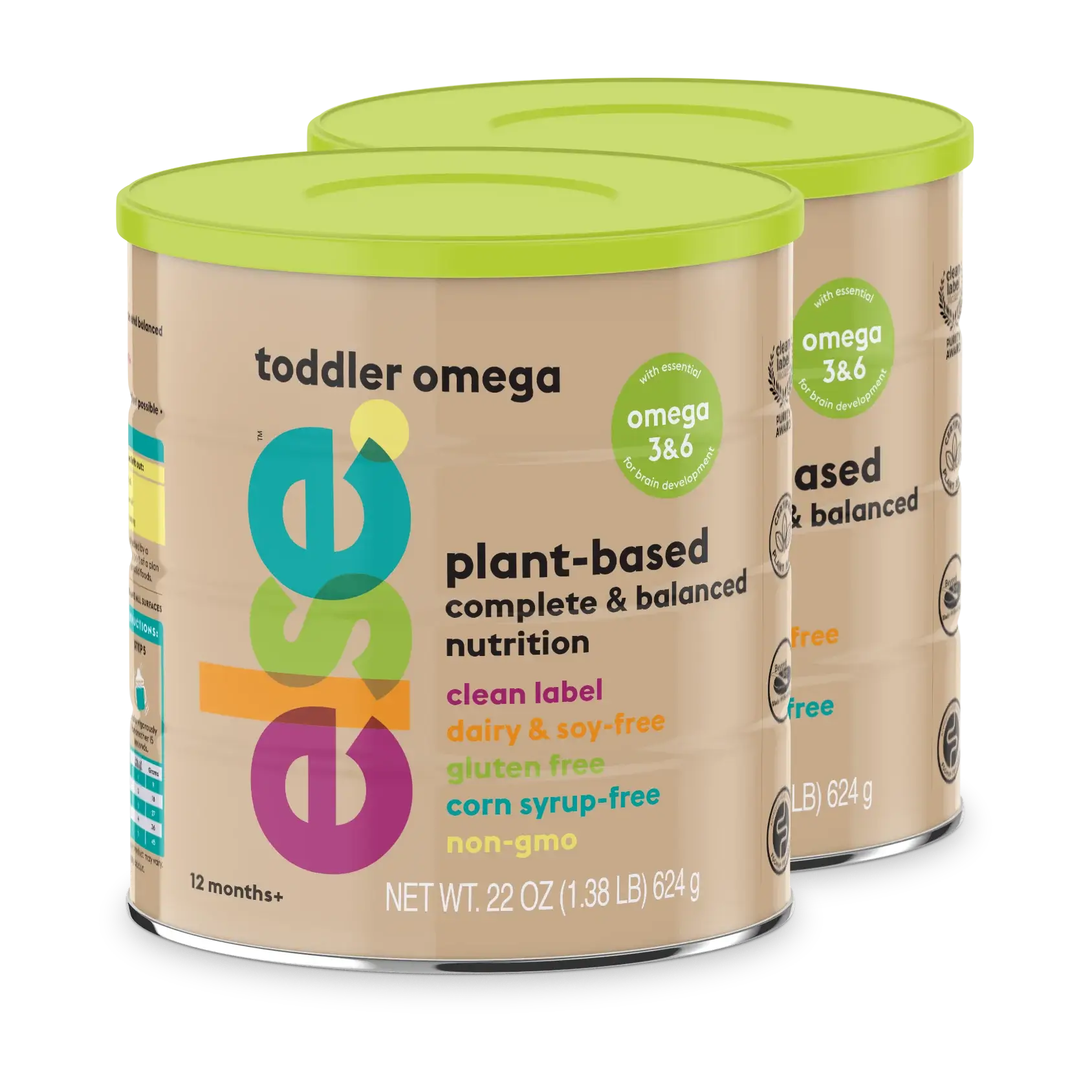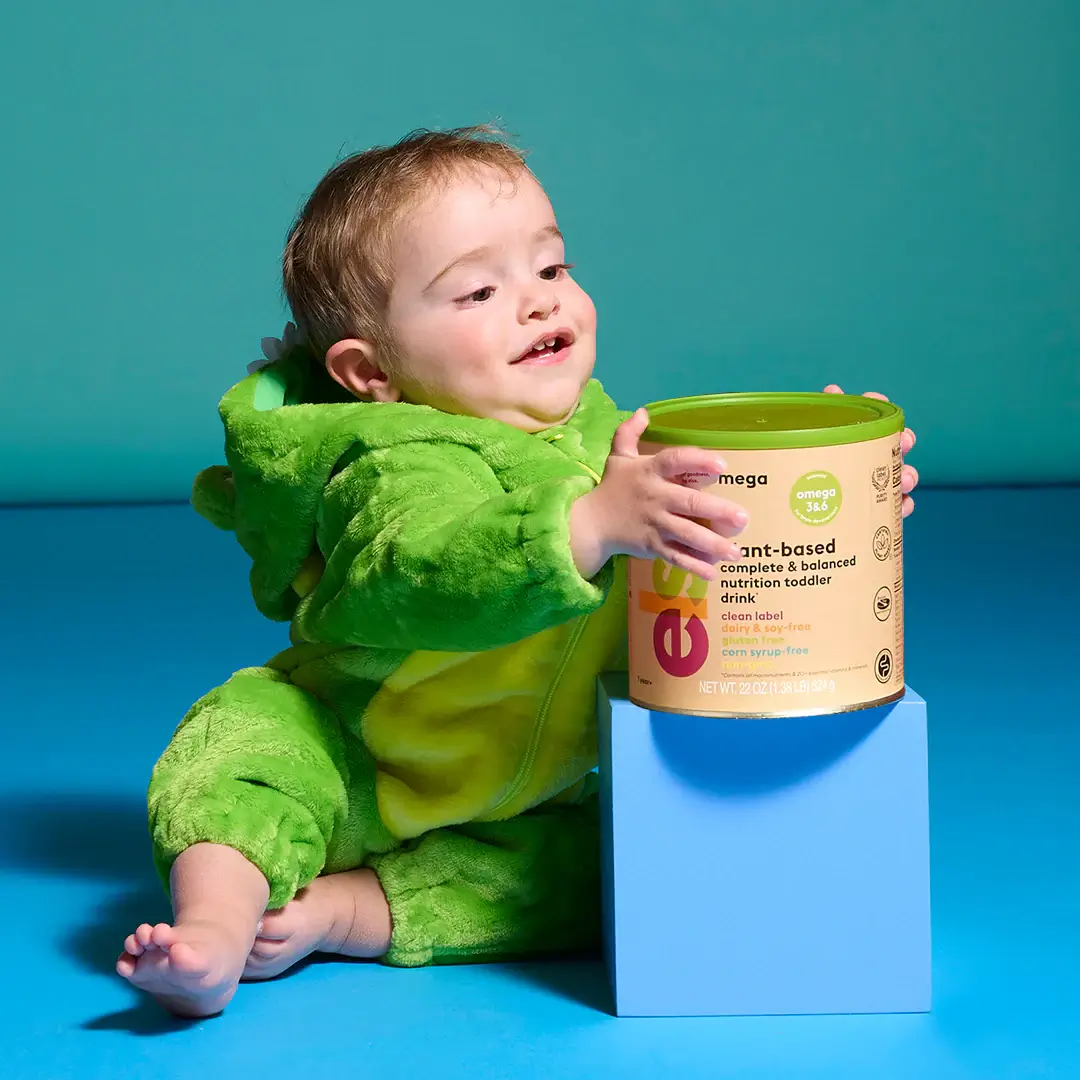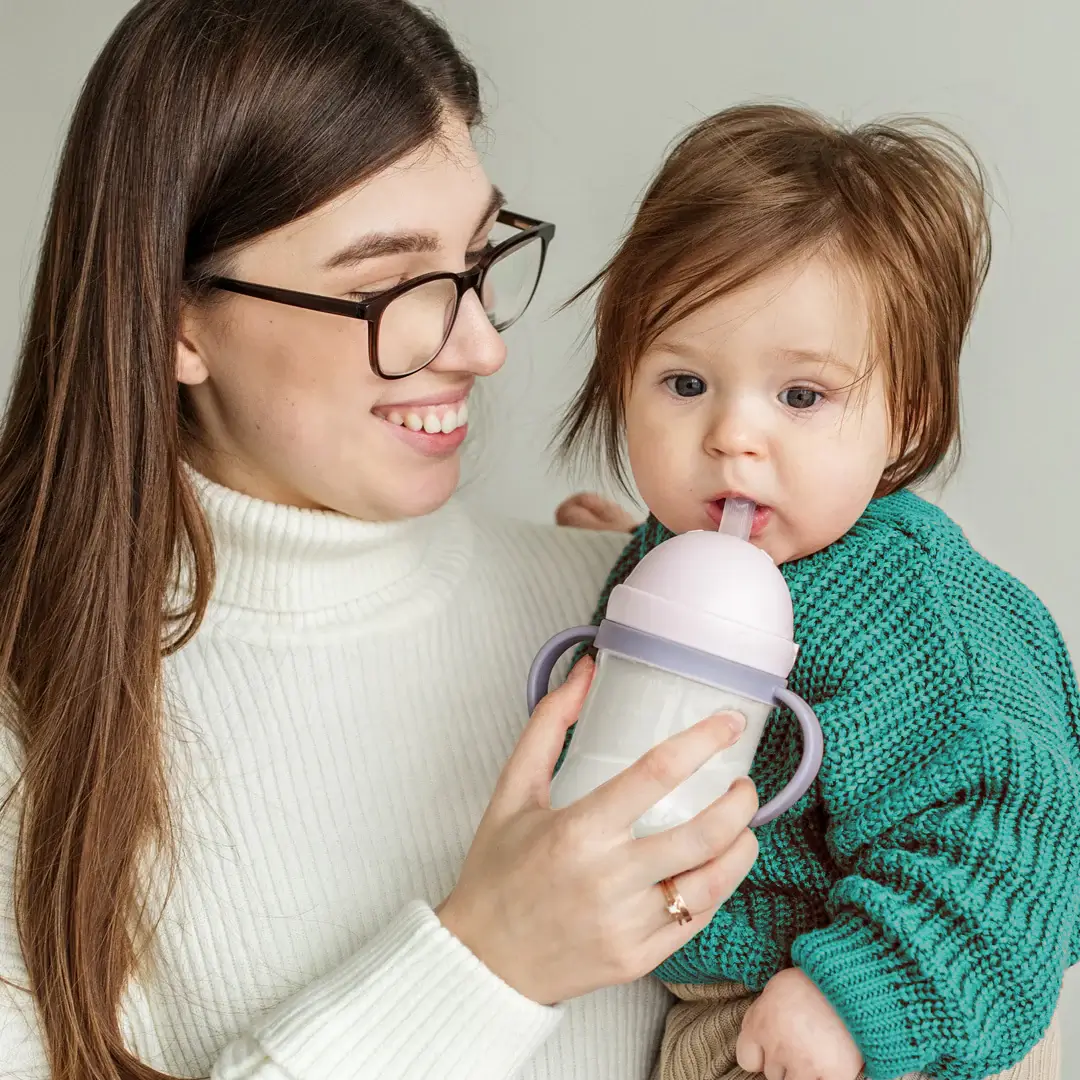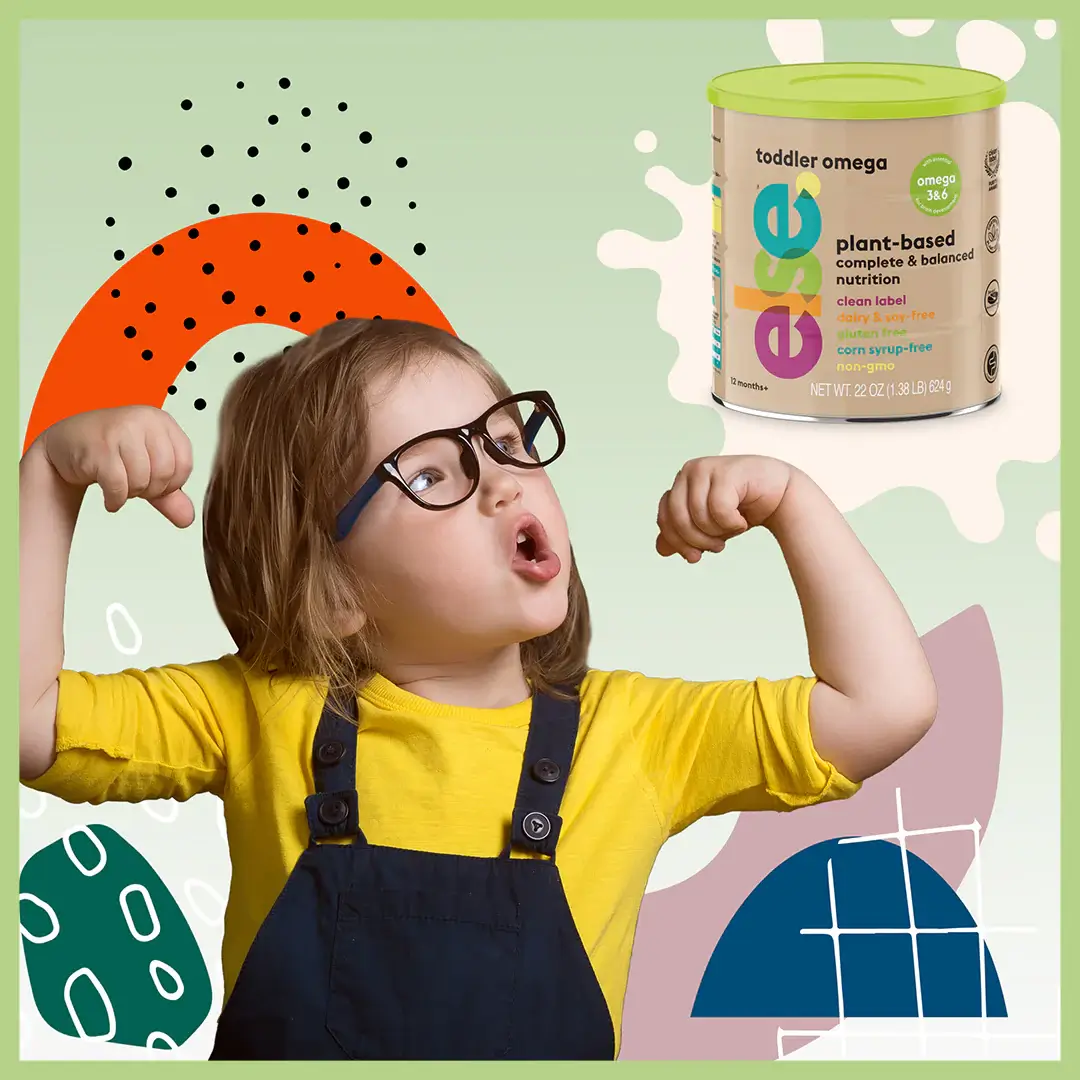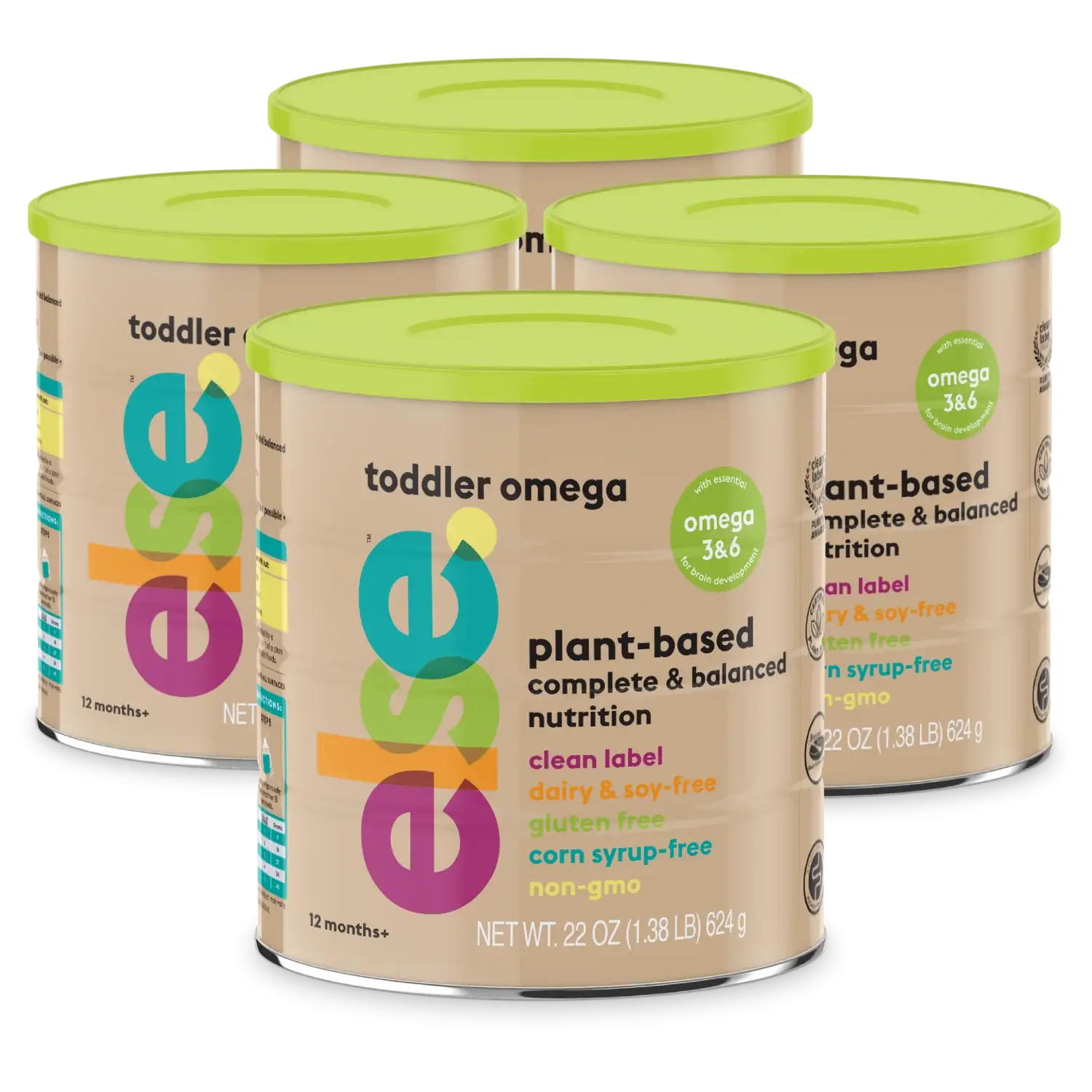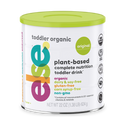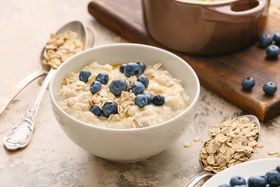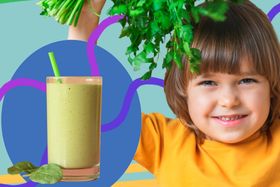Why This Plant Superfood Combination Is So Healthy for Your Child
Discover the benefits of Else Toddler Formula, organic, plant-based nutrition made with three superfoods: almonds, buckwheat, and tapioca, and find out why this wholesome recipe is ideal for your kid's health and growth
Published June 28, 2024
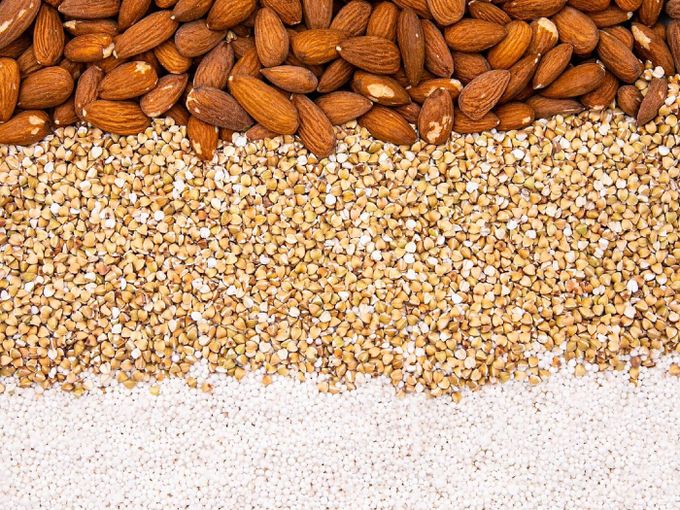
When it comes to choosing a toddler formula, parents are increasingly looking for natural, wholesome alternatives that support their child's growth without unwanted additives.
Else Toddler Formula is an innovative plant-based option that stands out for its simplicity and purity. In this article, we'll explore the exceptional nutritional benefits of these ingredients and why Else Toddler Formula is a smart choice for your little one.
» Elevate your toddler's nutrition with a natural, plant-based formula for growth and purity
Else Toddler Formula's 3 Main Ingredients and Their Benefits
Three main food ingredients make up 92% of Else Toddler Formula: almonds, buckwheat, and tapioca. All three are organic, non-GMO, and with zero added hormones, pesticides (glyphosate-free), antibiotics, or preservatives. The nutrition drink is plant-based, gluten-free, dairy-free and soy-free.
» Find out more about gluten sensitivity and celiac disease in kids
- Almonds and buckwheat nutrients come directly from the whole plants, NOT from highly processed extracts and derivatives of these plants.
- The proteins (amino acids) are NOT extracted using chemicals. There are no added purified oil blends or any corn syrup solids.
- It has less sugar than traditional toddler formulas/drinks on the market and is easy to digest due to the lack of inflammatory ingredients and processed items (gums, additives, etc.).
In addition, it is a sustainable product and has a formulation process with a small ecological footprint, meaning it’s safe for our environment as well as for little, growing bodies.
1. Almonds
Almonds are the seed of the fruit of almond trees, medium-sized trees that bear pink and white flowers. The ones we eat are of the sweet almond variety.
» Here's all you need to know about mighty almonds
They are very good sources of:
- Biotin
- Vitamin E (an antioxidant)
- Copper
- Manganese
- Vitamin B2 (riboflavin)
- Phosphorus
- Magnesium
- Molybdenum
They are a great source of protein and heart-healthy monounsaturated fat.
Almonds can help lower bad cholesterol (LDL) and decrease the risk of heart disease. They can also help increase blood antioxidant levels while decreasing blood glucose (blood sugar) and insulin, helping prevent diabetes.
» Here's how to create a balanced diet to ensure your little ones are happy, healthy, and full
Research has shown that, as part of a healthy diet, almonds can help reduce inflammation and cholesterol as much as prescription statin drugs. This article details all the additional health benefits of almonds.
2. Buckwheat
Buckwheat is the fruit seed of another fragrant flowering tree. It is NOT a grain AND it is gluten-free, despite the word “wheat” being in its name.
- Buckwheat is a very good source of manganese and a good source of copper, magnesium, phosphorus and fiber.
- Its protein is of high quality since it contains all 8 essential amino acids (protein building blocks that the body can’t make and we must get from diet), including lysine.
- The flavonoid (phytonutrient that has antioxidant properties) and magnesium content of buckwheat make it a heart-healthy food.
Studies show that increased intake is associated with lower LDL (bad cholesterol) and total cholesterol, higher HDL cholesterol (good), and lower blood pressure. Consumption can help control blood sugar, which can decrease the risk of and manage diabetes.
» Understand the micronutrient and carbohydrate needs of kids
As a gluten-free plant, it is rich in insoluble fiber and it's prebiotic. Both of these are great for digestion (because they quicken the movement of food through the GI tract and are good for gut bacteria) and can prevent gallstones. Lignan, a phytonutrient found in buckwheat, promotes healthy bacteria formation in the gut and thus improves digestion, as well as decreases the risk for heart disease and cancer.
» Read more about children's digestive health
Diets rich in whole grains like buckwheat can also decrease the risk of childhood asthma. An in depth discussion of the nutrition benefits of buckwheat can be seen in this journal article.
3. Tapioca
Tapioca is a gluten-free carbohydrate extracted from cassava, also called yuca. Cassava is a starchy root vegetable (like a potato). Tapioca maltodextrin is an easy-to-digest form of carbohydrate and is free of taste, smell, and flavor, lending to the mild flavor of the Else formula.
» Learn more about toddler nutrition and toddler formulas
Is Tapioca Maltodextrin Safe?
Yes, in fact, tapioca maltodextrin is made using water and all-natural enzymes.
At Else, we even make an effort to use organic tapioca maltodextrin!
Traditional maltodextrin is often produced using chemicals and GMO corn, and wheat maltodextrin contains gluten.
Toddler Formula Alternative that uses Whole Foods
Else’s powder-based toddler formula alternative is from real, WHOLE FOODS—and it's a minimally processed food choice. Whole foods contain more benefits than their broken-down, isolated components. Phytonutrients, fiber, vitamins, and minerals are more abundant and demonstrate increased health benefits when consumed as part of an intact food.
» Uncover the whole foods difference of Else nutrition
Due to the almonds and buckwheat food sources, Else toddler formula contains 1.5 grams of fiber per 8 oz fluid cup, while most toddler formulas have less than 1 gram. Else contains 1 gram of saturated fat and 0 mg cholesterol and contains ingredients that help lower cholesterol. Elevated cholesterol can begin to occur in children as early as age 2.
» Check out the benefits of whole foods diet for toddlers
In addition to all of the health benefits mentioned above, Else’s organic toddler nutritional drink, importantly, mimics the nutritional composition values of breastmilk, which we all agree is the gold standard. Else ensures that its toddler formula alternative matches year two of breast milk. In the second year of a baby’s life, breast milk composition contains increased protein and lower levels of calcium and zinc, as shown in this study on second-year breast milk. Else, plant-based toddler nutrition drink does as well.
The content and advice provided in this article are for informational purposes only and are not a substitute for medical diagnosis, treatment, or advice for specific medical conditions. Always consult a pediatrician to understand the individual needs of your child.





